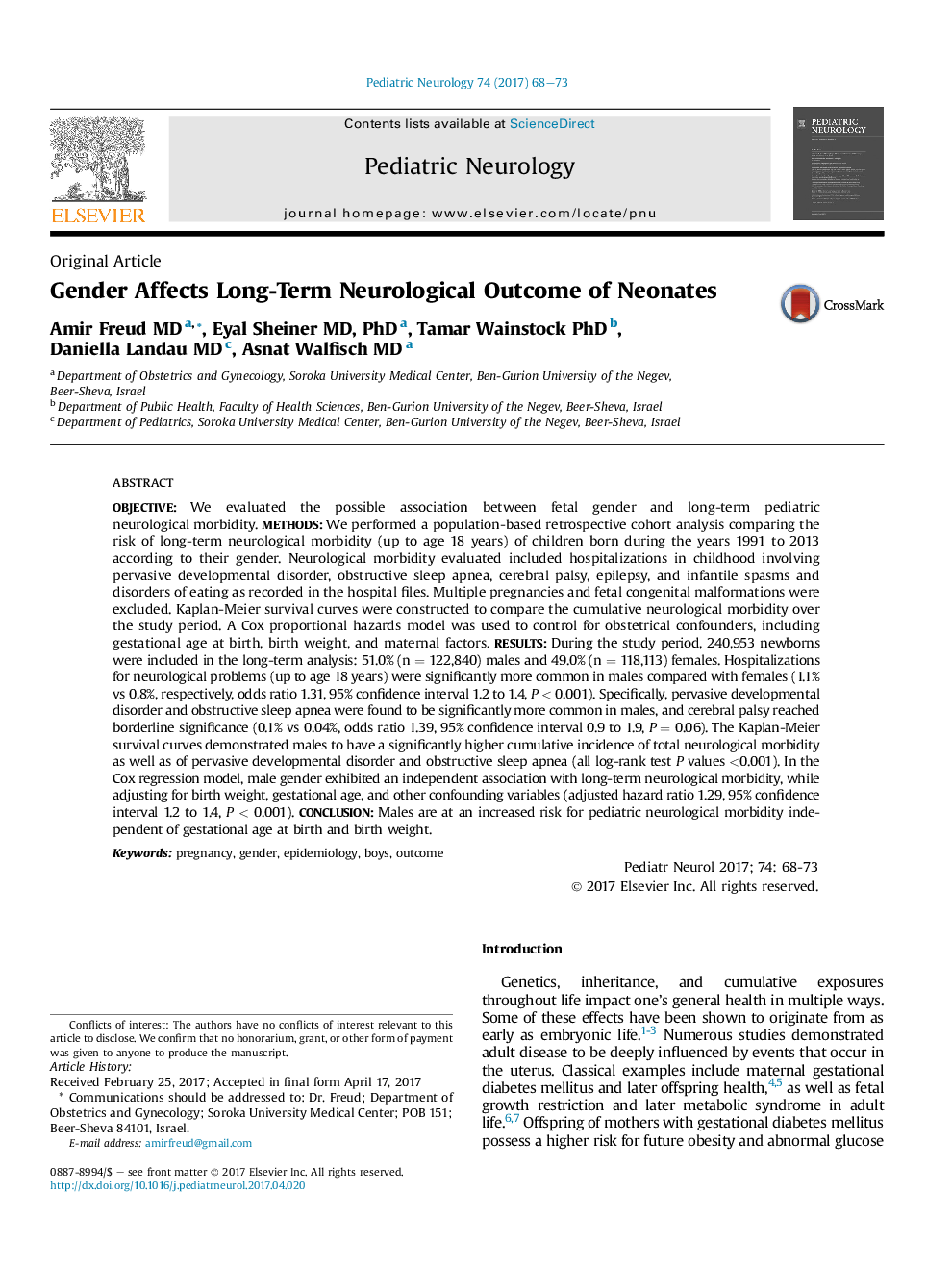| کد مقاله | کد نشریه | سال انتشار | مقاله انگلیسی | نسخه تمام متن |
|---|---|---|---|---|
| 5632885 | 1581252 | 2017 | 7 صفحه PDF | دانلود رایگان |
ObjectiveWe evaluated the possible association between fetal gender and long-term pediatric neurological morbidity.MethodsWe performed a population-based retrospective cohort analysis comparing the risk of long-term neurological morbidity (up to age 18 years) of children born during the years 1991 to 2013 according to their gender. Neurological morbidity evaluated included hospitalizations in childhood involving pervasive developmental disorder, obstructive sleep apnea, cerebral palsy, epilepsy, and infantile spasms and disorders of eating as recorded in the hospital files. Multiple pregnancies and fetal congenital malformations were excluded. Kaplan-Meier survival curves were constructed to compare the cumulative neurological morbidity over the study period. A Cox proportional hazards model was used to control for obstetrical confounders, including gestational age at birth, birth weight, and maternal factors.ResultsDuring the study period, 240,953 newborns were included in the long-term analysis: 51.0% (n = 122,840) males and 49.0% (n = 118,113) females. Hospitalizations for neurological problems (up to age 18 years) were significantly more common in males compared with females (1.1% vs 0.8%, respectively, odds ratio 1.31, 95% confidence interval 1.2 to 1.4, P < 0.001). Specifically, pervasive developmental disorder and obstructive sleep apnea were found to be significantly more common in males, and cerebral palsy reached borderline significance (0.1% vs 0.04%, odds ratio 1.39, 95% confidence interval 0.9 to 1.9, P = 0.06). The Kaplan-Meier survival curves demonstrated males to have a significantly higher cumulative incidence of total neurological morbidity as well as of pervasive developmental disorder and obstructive sleep apnea (all log-rank test P values <0.001). In the Cox regression model, male gender exhibited an independent association with long-term neurological morbidity, while adjusting for birth weight, gestational age, and other confounding variables (adjusted hazard ratio 1.29, 95% confidence interval 1.2 to 1.4, P < 0.001).ConclusionMales are at an increased risk for pediatric neurological morbidity independent of gestational age at birth and birth weight.
Journal: Pediatric Neurology - Volume 74, September 2017, Pages 68-73.e1
